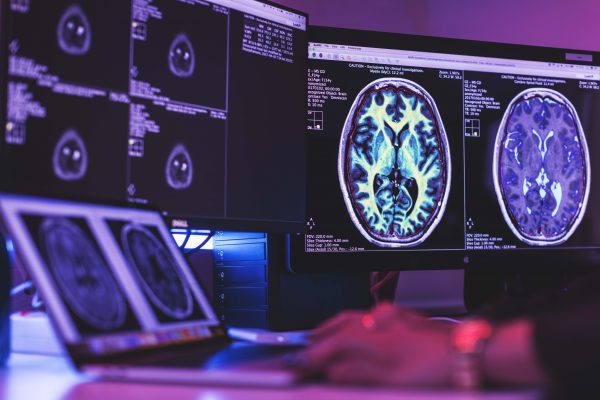Breakthrough AI-Based Quantitative Brain Imaging in MR to Advance Neurology Care
Posted on 04 Mar 2024
Diagnosing brain injuries and neurodegenerative diseases is a complex task for clinicians due to the varying symptoms presented by patients. Precise evaluation of brain tissue volume and distribution is crucial for diagnosing these conditions. Traditional visual assessments of MRI images often lack accuracy and objectivity, making it challenging to measure tissue volume from 2D slices. Now, a breakthrough technology automatically measures various brain tissues, aiding in the diagnosis, progression assessment, and therapy monitoring of brain diseases.
Royal Philips (Amsterdam, Noord-Holland) and SyntheticMR (Linköping, Sweden) have launched Smart Quant Neuro 3D. This innovative tool significantly enhances decision-making in diagnosing and assessing therapies for brain disorders such as multiple sclerosis (MS), traumatic brain injury (TBI), and dementia. Smart Quant Neuro 3D integrates Philips' AI-based SmartSpeed image-reconstruction technology, its 3D SyntAc clinical application, and SyntheticMR's SyMRI NEURO 3D quantitative tissue assessment software. This integration equips healthcare providers with robust tools for more confident diagnoses, ultimately benefiting patients. Philips' exclusive agreement with SyntheticMR makes it the only company currently able to offer SyMRI NEURO 3D capability on MR scanners.

Utilizing AI, Smart Quant Neuro 3D delivers verified, automatic, and precise 3D segmentation and volume measurement of brain tissues such as white matter, gray matter, cerebrospinal fluid, and myelin. These measurements, when analyzed by a trained physician, can provide valuable insights for patient diagnosis. Clinicians can use Smart Quant Neuro 3D to obtain quantitative data, track treatment impacts, and guide adjustments or alternative interventions. This continuous monitoring improves patient care by allowing proactive management of neurological conditions and optimizing treatment outcomes. Smart Quant Neuro 3D is particularly adept at measuring myelin, crucial for the proper transmission of electrical impulses in the brain. Myelin loss is a key indicator of TBI, and Smart Quant Neuro 3D's ability to detect currently invisible abnormalities on conventional MR scans aids in early diagnosis and intervention.
Quantifying myelin loss is also vital in progressive diseases like MS, helping clinicians assess the condition, monitor its progression, and evaluate the effectiveness of disease-modifying drugs. Patients also benefit from Smart Quant Neuro 3D as it provides all necessary clinical MR imaging contrasts from a single acquisition, eliminating the need for additional scans. Philips' AI-based MR SmartSpeed reconstruction technology enhances imaging speed by nearly three times and improves resolution by up to 65%, facilitating patient scanning and potentially increasing radiology department throughput. SyntheticMR's SyMRI NEURO 3D software then conducts an automatic analysis of the imaging data, accurately segmenting and measuring tissue volume in less than 10 seconds of post-processing.














